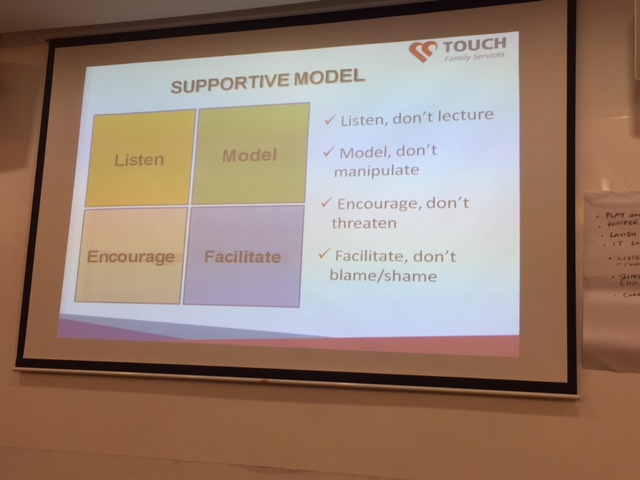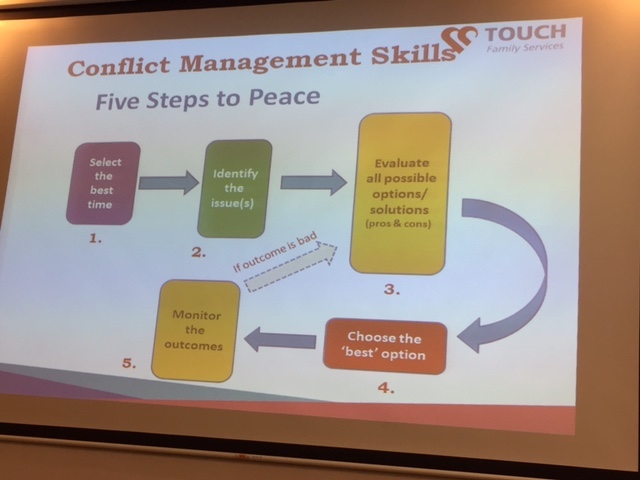The joys (or not so joyful) of grandparenting
There are a host of challenges as a grandparent and the best thing to do is know where those minefields are.
BY: Eleanor Yap
 Grandparenting can be an utmost joy … or it can be a painful experience. First off, grandparents today are different from previous generations. Some see their grandchildren only over special occasions, some see them twice a year due to grandchildren living far away sometimes beyond Singapore, while some others see them all the time as they are living under the same roof.
Grandparenting can be an utmost joy … or it can be a painful experience. First off, grandparents today are different from previous generations. Some see their grandchildren only over special occasions, some see them twice a year due to grandchildren living far away sometimes beyond Singapore, while some others see them all the time as they are living under the same roof.
Shared Professor Kalyani Mehta, during a WINGS conference on grandparents, “In a volatile and work-centred world, grandparents give a sense of security and emotional stability to young children and teens.” She added that grandparents have the time to listen and understand children. They share their life stories that can become life lessons for the young generation.
According to the Singapore Department of Statistics, in 2010, those living with their spouse and with children in the household – those between 65 and 74 years old was 43.1 percent, between 75 to 84 was 26.8 percent and those 85 years and above was 14.2 percent. In terms of those living with children but without a spouse – those between 65 and 74 years old was 20.8 percent, 75 to 84 was 42.5 percent and those 85 years and above was 63.3 percent. Further statistics on grandparents – in a 2011 National Survey of Senior Citizens of those aged 55 and above, most of the grandparents had below lower secondary education, and most lived apart from their grandchildren but despite that, most had meals together once a week. And, with a declining birth rate, in most cases, there are not more than two children, which may be a relief for some grandparents.
Also there are different scenerios – some grandparents are more than willing to take on the role of caregiving, while others may feel they don’t want that responsibility as they have already done their caregiving duties bringing up their own children. And then there are some grandparents who get along well with their daughters-in-law, who could also be their own daughters, while there are also some who don’t see eye-to-eye with them and find communicating with them painful.
Grandparents are often turned to for help by parents in cases of divorce, domestic violence, broken home, teenage pregnancy, death, incarceration, and medical or psychiatric problems. And today, unlike previous generations, both parents are working, and are financially-capable and well-educated.
To understand more about grandparenting and navigate some of these real-life challenges, TOUCH Family Services held a workshop for grandparents and grandparents-to-be on how they can traverse their all-important grandparenting roles and make the experience joyful and enriching for both parties.
Taking on a supportive role
The underlying message throughout the workshop was that grandparents play a supportive role as they are not the parents. So how do they do that? TOUCH Family Services shared four key traits in such a role (see right):
- Listen, don’t lecture.
- Model, don’t manipulate.
- Encourage, don’t threaten.
- Facilitate, don’t blame or shame.
It added that there are six As to grandparenting. They include:
- Acceptance – Develop a sense of security and self-worth.
- Appreciation – Develop a sense of significance.
- Affection – Develop a sense of love and being loved.
- Availability – Develop their sense of importance.
- Accountability – Develop a sense of self-discipline and self-control.
- Authority – Provide boundaries for making right choices and develop a sense of self-decisiveness.
In the workshop, TOUCH Family Services touched on active listening, which means listen without interruption, without judgment, with sincerity and interest, with understanding and with empathy. It shared that most of us are so concerned about getting our own ideas across and in doing so, we end up failing to listen.
So how can we put in place effective listening habits? Avoid minimising the issue(s), stop interrupting, don’t be too quick to offer advice or opinion, stay focused and don’t digress, and stop judging and analysing – listen and understand first. The non-profit shared five steps to keeping the peace (see left):
- Select the best time.
- Identify the issue(s).
- Evaluate all possible options/solutions (pros and cons).
- Choose the ‘best’ option.
- Monitor the outcomes. If the outcome is bad, then go to Step 3.
Participants shared more ways to be better grandparents to get along with not only the grandchildren but also with their parents:
- Encourage grandchildren to call their grandparents, especially before going to bed.
- Put the whole family on WhatsApp so everyone can learn what everyone is up to.
- Make sure you are a good example to your grandchildren as they will follow what you do.
- Make sure you follow through in your home. For instance, if in their homes, the parents don’t allow watching of TV and playing on the phone, at your home, you too should do the same or else problems may arise.
- Show appreciation. For example, one participant shared that his daughter would bring them out to dinner to show her appreciation for them taking care of the children.
Know your limits
The workshop also touched on boundaries of grandparenting and that grandparents should not take over the full responsibility of parents. That final authority should always rest with the grandchildren’s parents. Did you know that some daughters-in-law don’t want their fathers-in-law to bathe their young children in some cases?
Other boundaries (which also protect their grandchildren’s interests) that were raised by the participants include:
- Food – Is it ok to buy them sweets?
- Safety issues – Can the grandchildren be brought to the playground or anywhere outside?
- Discipline.
- Money – Should there be a monthly allowance for basic necessities like milk powder? You need to be frank and transparent at the beginning, said a participant, and address whatever expectations and limitations.
- Gifts – Buying things for them – how much is too much?
Interesting to note, in Singapore, there exists a Grandparent Caregiver Relief to working mothers who engage the help of their parents, grandparents, parents-in-law or grandparents-in-law to take care of their children but there is no relief given to grandparents themselves. TOUCH Family Services hopes that in the future grandparents would be one of the main focus.



0 Comments